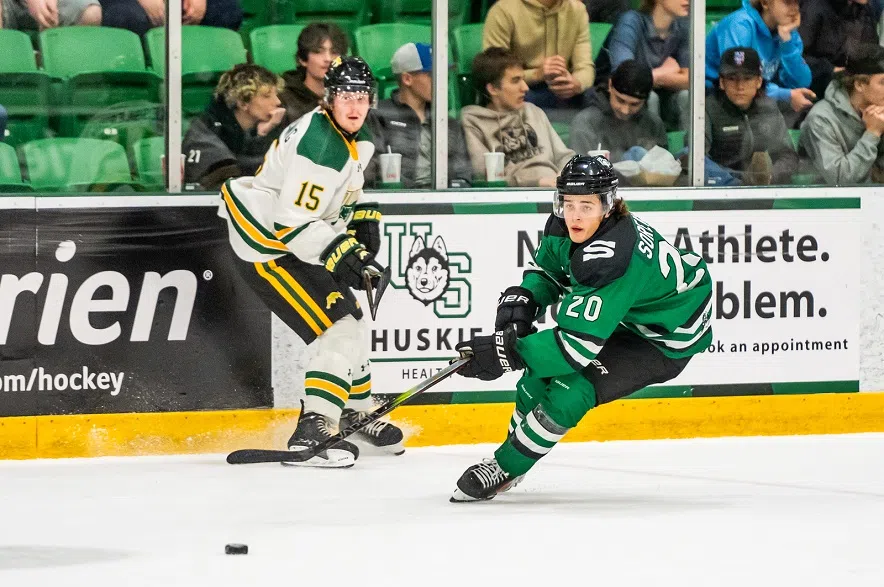CALGARY — Western Canadians tired of isolating at home are filling the slopes at mountain ski resorts that have opened earlier than usual thanks to abundant snow and cold temperatures and despite worries about surging cases of COVID-19.
Two Banff National Park resorts have had their earliest openings on record — 95-year-old Banff Norquay opened Oct. 24 and Lake Louise, about 40 years old in its current form, opened Oct. 29.
Nakiska Ski Area, about 100 kilometres west of Calgary, opened for weekend preview skiing last weekend (it goes seven days a week as of Nov. 27), and Sunshine Village Ski Resort near Banff opened on Monday.
“We’re excited to be opening but, no surprise, it’s very much a different year this year,” said Christopher Nicolson, CEO of the Canada West Ski Areas Association, which represents 92 ski hills west of the Manitoba-Ontario boundary.
“One of the key messages we would have for our guests is plan ahead, look online, understand what the pandemic protocols will be at the ski area. Do that in advance of arriving.”
He said ski areas have been focused on how to operate safely with the COVID-19 pandemic since being closed last March in the initial pandemic lockdowns, with many fine-tuning procedures during their summer hiking and biking seasons.
Ski areas are generally requiring guests to wear masks while lining up, riding the ski lifts, and warming up indoors to control coronavirus spreading. Rules vary on how many people are allowed on chair lifts and gondolas and whether you can buy tickets at the resort.
Recent surges of COVID-19 cases in Alberta have prompted suggestions that a general lockdown similar to the one that closed ski resorts in March be reimposed.
“It feels surreal to be open and to welcome guests back to the slopes after our eight-month hiatus. We hope to be able to stay open,” said Sunshine spokeswoman Kendra Scurfield, adding the resorts are providing safe and healthy outdoor recreation.
Sunshine has six lifts operating and reported 25 centimetres of “sweet Rocky Mountain powder” in the past week.
Lift tickets sales have been brisk at Norquay despite having only one of its four chairlifts open, said marketing director Simon Moffat.
“I think it started snowing on the 11th of October this year and it really didn’t stop for a couple of weeks and we got some really cold temps in that time,” he said.
“We were lucky with over half a metre of snow that fell and allowed us to open up early.”
The resort is selling tickets by reservation only and on the first day reached a self-imposed cap on sales to limit crowding in view of the pandemic.
At Lake Louise, meanwhile, director of communications Dan Markham said seven of 10 lifts were open as of Tuesday, along with 50 of 160 runs. Attendance has been above expectations thanks to “pent-up need.”
The resort recommends buying passes or tickets before coming to the hill but does sell tickets there and has no limits on attendance due to the pandemic.
Markham said the resort will have separate lineups for those who want to go up alone or in a trusted cohort group on the six-person gondola but will allow loading to capacity if everyone has a mask.
Nakiska is the only ski hill open so far among the six owned by the Resorts of the Canadian Rockies, said spokesman Matt Mosteller. Its three B.C. resorts and two in Quebec are expected to open over the next month depending on conditions.
He said the company has decided to let guests determine how they use the eight-person gondola that is the only way to get to the upper part of the ski area at Kicking Horse Mountain Resort in Golden, B.C. this season.
Those who are comfortable riding with strangers can fill the gondola to capacity but there will also be an option to ride with just cohort members or with as few as two unrelated skiers if customers are concerned about exposure to the COVID-19 virus, he said.
Mosteller said the company is also experimenting with an antimicrobial coating on the interior of the gondola cabins as further protection against COVID-19 on surfaces.
This report by The Canadian Press was first published Nov. 13, 2020.
Dan Healing, The Canadian Press







